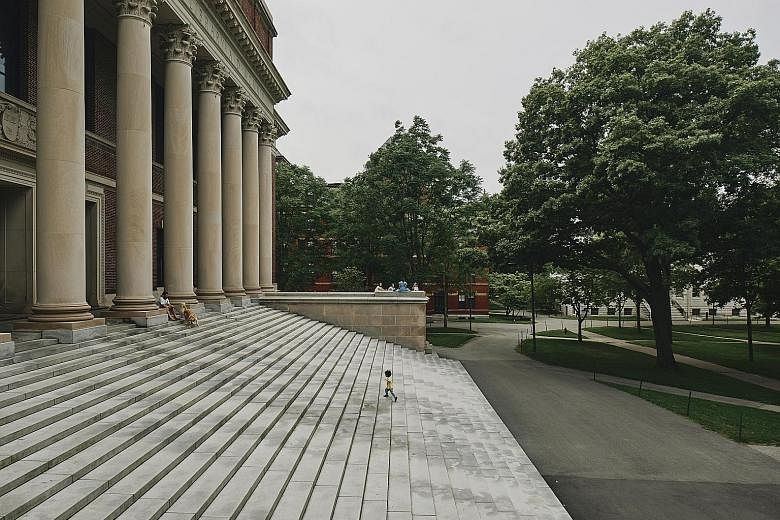MASSACHUSETTS/CALIFORNIA • Harvard University's legal battle with the Trump administration over a new government rule barring visas for foreign students taking online-only classes in the United States features some all-nighter deadlines.
Tight timeframes are not unusual in court, but the US Immigration and Customs Enforcement (ICE) is not making it easy.
It announced the restrictions last Monday and told colleges to submit an "operational change plan" by Wednesday on how they will accommodate their international students under the new policy as they grapple with the highly infectious coronavirus.
At the same time, the academic calendar is studded with fast-approaching cut-offs for decisions, including whether students want to defer their studies for a year.
District Judge Allison Burroughs in Boston has a lot to squeeze in, in-cluding the consideration of "friend of the court" briefs from outsiders.
In a video conference last Friday to plan it all out, Harvard lawyer Bill Lee estimated seven to nine such briefs, each consolidating a number of separate advocates.
Mr Lee proposed that Ms Burroughs consider both a temporary restraining order and a longer-lasting preliminary injunction against the new rules in a single hearing, saying the government had agreed it was best.
He said that if the judge granted only a temporary restraining order, it would put students in a difficult position.
"It would get us right up to the brink of classes with people not knowing what they were going to do or where they were going to be," Mr Lee told the judge.
One of those people might be Mr Eugene Ng, a rising junior at California State University, Fullerton. The California State system announced its online model in May.
Mr Ng said that if the school does not change to a hybrid approach, he is going to leave it - and the United States.
"If I pay full prices, full tuition, and I still have to go back to my country to have time-zone differences" taking online classes, "I won't want to do it", said Mr Ng, 26, who is from Malaysia.
"On top of that, I don't think I ever want to come back to the United States again, to be honest, because I spend so much money here. I don't think this is, you know, how we're supposed to be treated."
Mr Lee said ICE's Wednesday deadline was a problem in other ways as well. "There are a whole series of dates where students have to decide whether to defer their academic year for an entire year," he said.
"Decisions have to be made on what courses are going to be offered. And folks have to decide, quite honestly, what country they are going to pursue the next year from."
Ms Burroughs, who ruled for Harvard last year in a case alleging it discriminates against Asian-Americans in admissions, set a hearing on the combined freezes for Tuesday.
"I'm just envisioning that between the briefing and the amicus briefs, there could be thousands of pages of reading in order to do this properly," she said. "I'm just worried about whether it is humanly possible."
Harvard and the Massachusetts Institute of Technology sued ICE over the rules two days after they were announced. They argue that the Trump administration's decision to rescind a coronavirus exemption to ICE's in-person class requirements was "arbitrary and capricious" and violates the Administrative Procedure Act by failing to allow public comment and consider harm to students.
Last Friday, they filed a request for a preliminary injunction.
ICE's new directive also requires that students on existing visas who want to remain in the US to transfer to a school that offers classes in person.
Harvard said about 40 per cent of students would return to its campus in Cambridge, Massachusetts, while all courses will be taught remotely.
BLOOMBERG











